
When you come down with a cold, all you want to do is relieve the symptoms and get back on your feet. Essential oils are extracted from the outer glands of leaves and plants, making them extremely concentrated sources of natural nutrients. They have a long history of remedying common cold and flu symptoms like coughs, headaches, and fatigue. They can be used as a booster to your doctor-recommended medicine or even on their own as a natural, herbal alternative. The following are the best oils to use for multi-symptom relief.
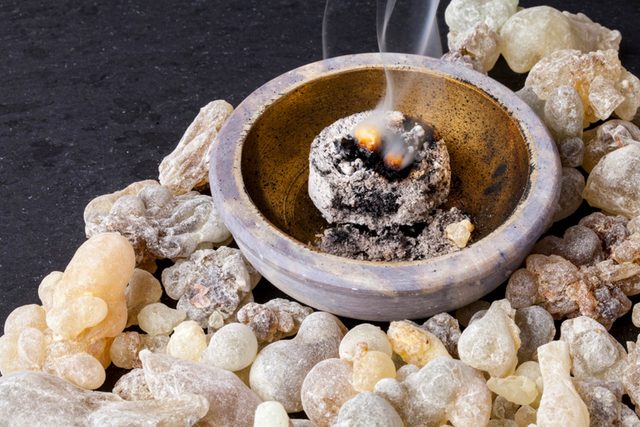
Frankincense
As one of the oldest known essential oils, frankincense has incredible antibacterial, antiviral, and anti-inflammatory properties—all of which can drastically shorten your cold or flu.
“Our ancestors didn’t know anything about bacteria or viruses, but they recognized the healing and calming properties of frankincense very early on,” said Anahit Markosian, head of Research and Development at Nairian Cosmetics. (Speaking of our ancestors, check out the crazy old-fashioned flu remedies in use back then.)
Frankincense is great for reducing stubborn coughs or respiratory issues, and it also has a naturally calming scent that can help you relax and heal.
“If you want a great formula for shortening the flu and alleviating symptoms, take 2 teaspoons of honey and drop a bit of frankincense into it to dilute it first, then add that mixture to any tea or just a pot of hot water,” she said.
Herbal teas have a dual benefit for fighting colds; the ingestion of the tea aids in respiratory issues while the steam that comes from the hot water helps clear your sinuses, according to Markosian.
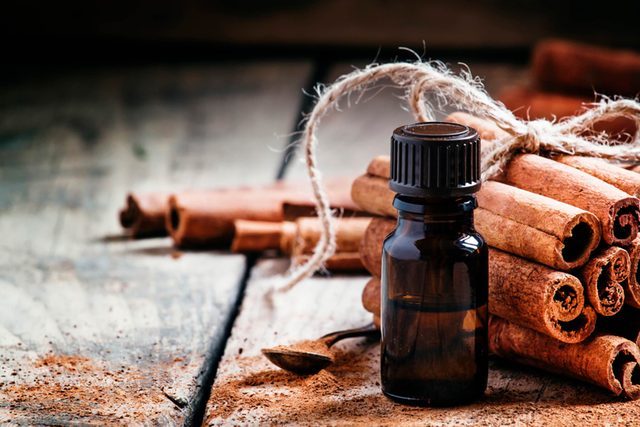
Cinnamon
Cinnamon is one of the most effective essential oils for relieving your cold and flu. A 2010 study found that a blend of cinnamon, clove, and wild orange reduced viral molecules in patients by up to 90%.
Cinnamon is an intensely warming and soothing plant. Drinking cinnamon tea will improve circulation (which you’ll need if you’re cooped up in bed all day). It’ll also give your entire body a warming effect, getting rid of the chills that come with the flu.
It’s also been found to enhance heart health as an added health bonus!
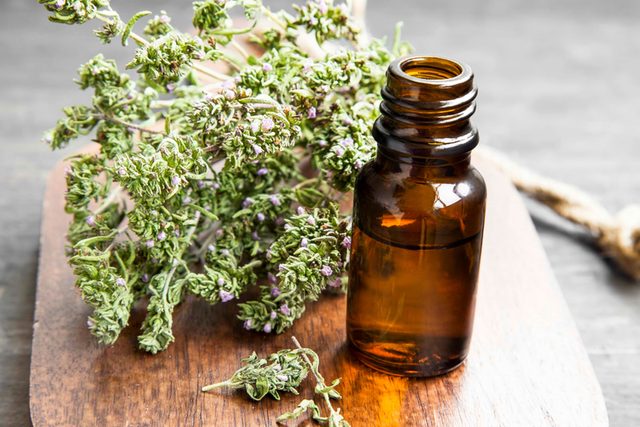
Thyme
Thyme works best to fight upper respiratory issues like congestion, coughs, and sneezing. You can diffuse the oil in a steamer for direct relief. It’s also a common herb in most kitchens, so using it in your cooking will also help ease your symptoms.
“The first thing Armenians do when they get a cold, almost as a reflex, is a steam inhalation with an herb—usually thyme,” said Markosian. “This serves a dual purpose of opening up congestion by bringing moisture to the mucus, and actually penetrating the mucus and acting as an antibacterial.”
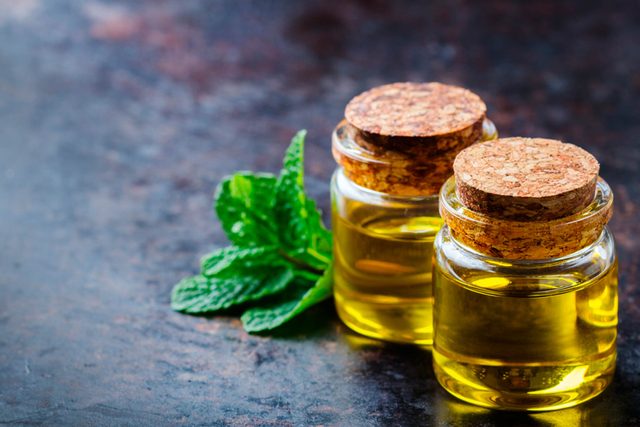
Peppermint
This bright and uplifting essential oil has a naturally clarifying and cleansing property, making it ideal for clearing up stubborn congestion and clearing airways. According to healthline.com, it’s great for reducing coughs, sinusitis, and throat infections. It also has a gentle warming effect, which can be helpful for minor aches and pains that come with the flu.

Basil
Who knew? The popular cooking ingredient has antiviral properties as well! It’s best used to remedy severe bronchial coughs and congestion.
According to Markosian, a local Armenian strain of basil is best for relieving cold and flu symptoms. “When Armenians get a spasmodic cough, one that’s really difficult to get rid of, we go right to the local purple basil plant or essential oil. It has great anti-spasmodic qualities that work best if you do a steam inhalation or drink tea made with this.” These are the best foods to eat when you’re sick.
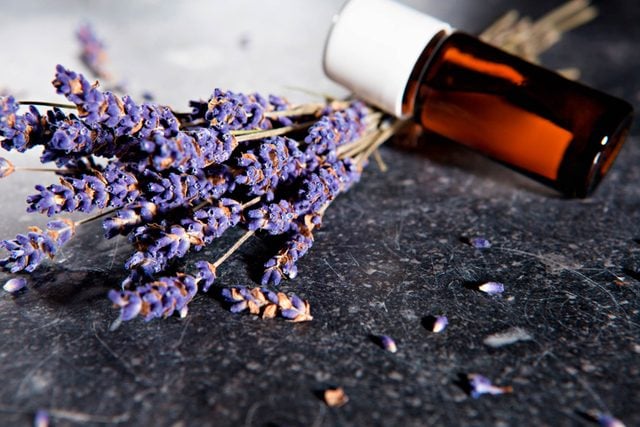
Lavender
Lavender is one of the most popular essential oils with its powerful flowery yet tranquil scent. It relaxes muscles, helps with headaches, and can even relieve sinus and chest congestion. The National Cancer Institute also found that it can balance hormones for women.
Make a gentle lavender massage oil or take a warm bath with a few drops of lavender diffused into the water for maximum relief.

Tea Tree
You’ll often see tea tree oil as an ingredient in natural skin care because of its antibacterial properties. This is great for fighting skin impurities, but it works inside your system too!
Along with its bacteria-fighting powers, it has antiviral and antimicrobial properties, according to Up Nature. This means it is effective at shortening colds and flus and alleviating most of the symptoms associated with the infection.
It’s also great for cleaning surfaces and clearing the air in your home to prevent anyone else from getting sick. The National Cancer Institute found that tea tree oil is an extremely effective antibacterial substance for skin and surfaces.
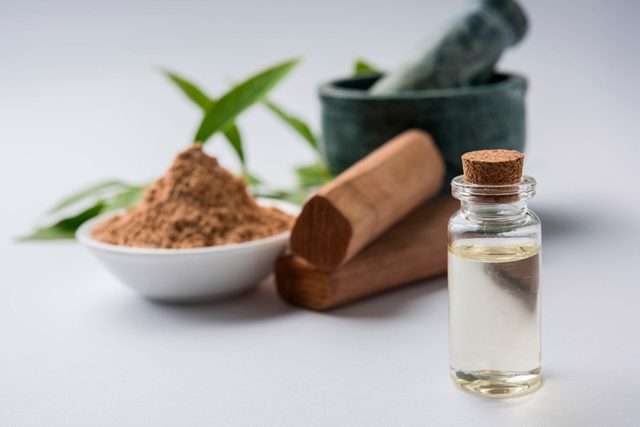
Sandalwood
This grounding and earthy essential oil is a natural expectorant, meaning it enhances the process of watering down of mucus to make it easier to expel from your system. Expectorants are commonly found in cough medicines and syrups, so this is a natural alternative to those ingredients to alleviate your cough, according to UpNature. Doing steam inhalation or a vapor rub with sandalwood are the your best bets of reap the benefits of its expectorant properties. Bonus: it also has anti-aging properties!
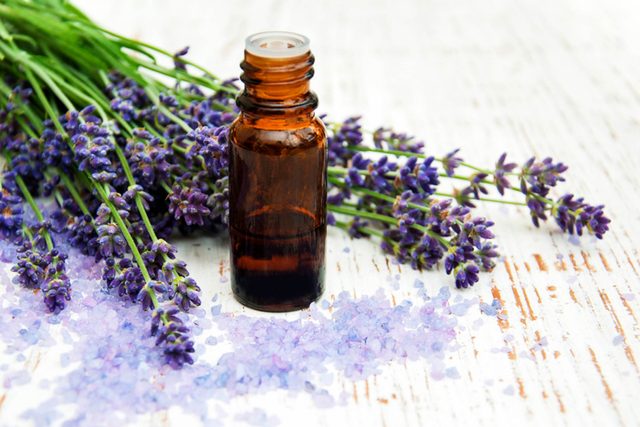
Clary Sage
Don’t let flu fatigue get the best of you! Beat the haze and grogginess that comes with being sick with this powerful natural remedy. Clary sage is one of the most diverse and multi-use essential oils—it can be used as an anti-anxiety remedy and even for menopausal symptoms, according to healthline.com. But for your cold, it’ll perk you right up.
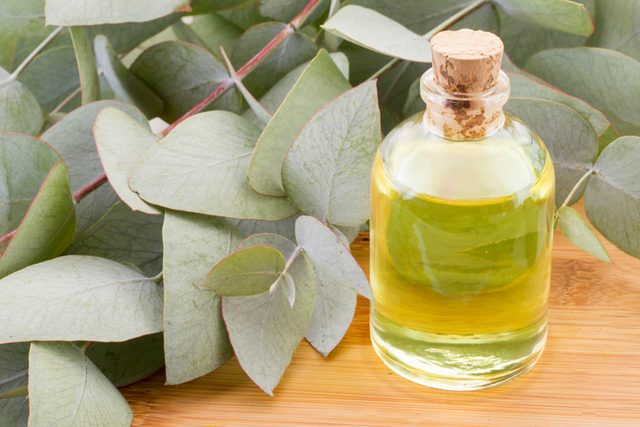
Eucalyptus
Its uplifting and fresh scent, along with its large quantities of eucalyptol, makes eucalyptus a great remedy for easy breathing and a natural remedy for stubborn coughs and sneezes. Diffusing this with a simple vapor diffuser or taking a eucalyptus scented bath will clear up those airways in no time.

Remember: When working with essential oils, less is more. It’s important to remember that they are extremely concentrated, and while it’s tempting to use as much as possible when you’re trying to feel better, diluting them in water or gentler oils like coconut or grapeseed oil will make them most effective at treating your cold and flu symptoms. Too much direct contact could actually do more harm than good.